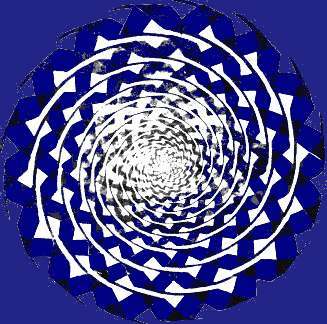 A European walk through Bordeaux 2O
A European walk through Bordeaux 2O
Hölderlin’s Remembrance.
37 allées de Tourny.

Originally, the hotel
was a Louis XV creation by
André Potier. At the request of Daniel Christoph
Meyer, the Hamburg consul in Bordeaux who had bought
it in 1793, Louis Combes
(1757-1818) transformed the Meyer house in 1795-1796 and enhanced it with a peristyle
of six columns with Ionic capitals, completed in 1797, making it look very different. It is this new perspective, which marks the end the avenues while
offering six columns mirroring the twelve of the Grand
Théâtre, that was seen by the German poet Hölderlin in 1802.
In fact, Hölderlin had hesitated before
accepting the offer of the
post of private tutor for
the Hamburg consul, Daniel Christoph Meyer. His fees had
to amount to about fifty
gold louis, to which would
have been added twenty-five
gold louis for travel expenses.
But the consul asked that
the tutor carry out the functions
of a “theologian,” and he did not reach a final decision before receiving the reassurance that he would
be “temporarily excused from preaching.”
After a gruelling
winter journey, passing through Lyon and the mountains of
Auvergne, where he thought his last hour had come, Hölderlin crossed the peristyle in front of
the Meyer home with its six
columns in the morning of
28 January 1802: “My
accommodation is almost too beautiful,” he wrote.
The first months of his stay in Bordeaux seemed uneventful. He described the Consul Meyer’s family as “truly excellent
people” and he felt “very hopeful among
his students.” On 16 April
1802, Hölderlin reassured his
mother: “I am as well as I could hope to be.” But
on 6 May 1802, after one hundred
and two days in Bordeaux, he left in a hurry.
His biographers would describe his Bordeaux preceptorship as
“the most mysterious of all
those that Hölderlin undertook.”
“You will be happy,” had said Consul Meyer on his arrival. In Bordeaux, he learned of the death of his grandmother on 14 February in Nürtingen. His brother said
that while he was in Bordeaux he had received
a letter from
Suzette Gontard – no doubt
the only love of his life –
telling him “that she was
seriously ill, that she had
a feeling she would soon die and that she was saying
goodbye to him forever.”
Six months after his return to Germany, he wrote in a draft
letter: “The powerful element, the fire from heaven, and the silence of
men, their life in the wild,
their restrictions and contentment
– all this has constantly struck me and, as one might speak of a hero, I can safely say
that Apollo struck me.”
The only document explaining his mysterious stay in Bordeaux remains his poem
Remembrance (Andenken), which
Hölderlin wrote probably a year after leaving
the banks of the Gironde. With
the reminiscences of Ausonius,
it remains “one of Hölderlin’s most perfect.”
The northeast blows,
But go now, and greet
the lovely
Garonne,
and the gardens
of Bordeaux,
[...]
from the windy
peaks
and vine-covered
hills
where the Dardogne
comes down with
the great
Garonne; wide as an ocean
the river flows
outward.
But the sea takes
and gives
memory,
and love fixes the eye diligently,
and poets
establish that which endures.
(Translated by James
Mitchell)
Hölderlin never forgot his stay.
Later, in three drafts of a hymn entitled The Nearest the Best, he sang of the gardens of Gascony.
Cross
Place Tourny, and take
Rue Huguerie to number 35
(corner
of Rue Lafaurie de Monbadon).
© Bertrand Favreau
and Tyché Editions 2014
The Intellectual
Property Code prohibits copies or reproductions intended for collective use.
Representation or reproduction in whole or in part by any means whatsoever,
without the consent of the author or his successors, is unlawful and
constitutes an infringement of copyright under articles L.335-2 and following
of the French Intellectual Property Code.
